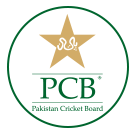Lahore 3 January 2012: Rich and glowing tributes were paid to late Air Marshal Nur Khan for his untiring and unending services as a Pakistan Air Force official, an administrator and above all as a sports administrator.
The Pakistan Cricket Board on Tuesday organised a function to pay tributes to the administrative legend of the country who with his vision contributed a great deal to cricket, hockey and squash.
A large number of people were present in the evening. Prominent among those were former PCB chairmen, Khalid Mahmood, Lt Gen (retd) Tauqir Zia, Shaharyar Khan, Nur Khan’s former colleagues Air Marchal Zafar Chaudhary, Tahir Rafiq, Ari Marshal Farooq Umar and Ari Vice Marshal Nazir Mirza, Air Marshal Asad Lodhi, PCB COO Subhan Ahmed, PCB chief selector Mohamamd Ilyas, Imtiaz Ahmed, Shafqat Rana, Bushra Aitzaz, Azhar Khan, Ijaz Ahmed, Ramiz Raja, Intikhab Alam, Aaqib Javed, Shafiq Papa, Sana Mir, Shahid Hamid and PHF president Qasim Zia.
Nur Khan took over as chairman PCB (then BCCP) in February 1980 and remained there for four years. And that era was the most successful in Pakistan cricket. Cricket legends Imran Khan and Javed Miandad became part of the team during Nur Khan’s tenure.
“He brought professionalism, accountability, and the cleanest of intentions to Pakistan's cricket administration. He was also a visionary. His far-reaching achievements include making the Asia Cup an enduring reality, and being an important part of the initiative that brought the World Cup to the subcontinent for the first time,” said PCB chairman Zaka Ashraf.
“We have gathered here today to pay our respects to the most cherished administrator of the country,” said he.
“As a soldier, he brought laurels for the country and as an administrator he took sports to new heights,” said Zaka.
He said Nur Khan accepted all the challenges and handled them with wisdom. His vision and foresightedness was of a great administrator, he added.
“We can go on and on praising his achievements and that won’t end. I found a similarity in today’s state of affairs with those of his times,” he added.
“He made the challenges a reality. He was a person as the saying goes ‘success comes to those who take the pain. He was the true ambassador of the country,” Zaka maintained.
Speaking on the occasion PHF president Qasim Zia revealed that as a sports administrator he transformed Pakistan's squash and hockey teams into world beaters. “He was always focused on performance and relied on youth and never left any stone unturned to achieve the goal.”
There was an expectation that he would bring a Midas touch to cricket. Yet not everyone was enthused. How could a man who had dabbled in hockey and squash handle something as complicated and outsized as cricket?
“It was during his era Pakistan won all the hockey titles including the Champions Trophy, the Olympics as well as the World Cup,” he said.
“Those were the glorious years of Pakistan hockey and we are now working on the same lines to bring back those days,” added Qasim Zia.
Nur Khan’s colleagues Air Marshal Zafar Chaudhary, Air Marshal Farooq Umar and Air Vice Marshal Nazir Mirza and former PCB chairman Shaharyar Khan also spoke on the occasion.
Air Marshal Zafar Chaudhary said that Nur Khan believed in no performance and result. “He was undoubtedly the best administrator and lived a resoundingly successful and glaring life,” he added.
Air Marshal Farooq Umar used a slide show to highlight his colourful life, although the slideshow was in black and white but Umar added colour with his commentary to the show.
Former PCB chairman Shaharyar Khan, also a relative of Nur Khan, said that he had the Midas touch -- whatever he touched turned into gold. “He was a dynamic administrator and a very good player of soccer, squash and hockey. But he was a brilliant organiser and when he took over the game, with his administrative skills he brought Pakistan cricket to the forefront in the world.
Air Vice Marshal Nazir Mirza said that Nur Khan taught how to be a leader and he was a fine friend, physically fit and full of passion. “He has gone but will live in our hearts,” he added.



